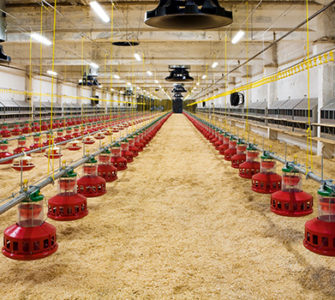Necrotic enteritis: Can it be managed effectively in NAE flocks?
Necrotic enteritis (NE) is not only a big problem in flocks raised without antibiotics, there’s a wide variation in how it presents itself, Steve Davis, DVM, president of Colorado Quality Research, told Poultry Health Today.
In birds raised without antibiotics, NE is much more severe in some flocks than in others. The age of onset also varies widely, Davis continued.
NE used to be considered age specific, almost always showing up between 14 and 24 days of age. Now, it appears on some farms before 7 days of age, but on other farms, it doesn’t show up until 35 days of age or older, he said.
“Where a company or complex is seeing a specific timing of this syndrome, it seems to be fairly consistent within that complex. But there’s no consistency from one company to another,” Davis said.
Management factors come into play, he continued. Humidity, feeding programs, feed changes and feed-ingredient quality all play a role in what Davis considers to be a disease syndrome.
He also reported seeing more NE in complexes using non-ionophore anticoccidials compared to ionophores.
Companies that are still using conventional methods, particularly feed-grade antibiotics and ionophores, don’t have NE, he said. Ionophores are very effective against coccidiosis, and good coccidiosis control can help prevent Clostridium perfringens, a cause of NE.
“Our old methods that we’ve had for years still work, but as the industry has chosen — or the consumers are pushing our industry — to move away from those methods, we’re getting more and more NE,” Davis said.
Anticoccidial-rotation programs are definitely an important way to help control coccidiosis and, in turn, prevent NE in flocks raised without antibiotics. Although there’s not any one rotation program that works for everyone, bioshuttle programs — a combination of vaccines and anticoccidials — seem to be working the best, he noted.
Posted on November 10, 2017

















